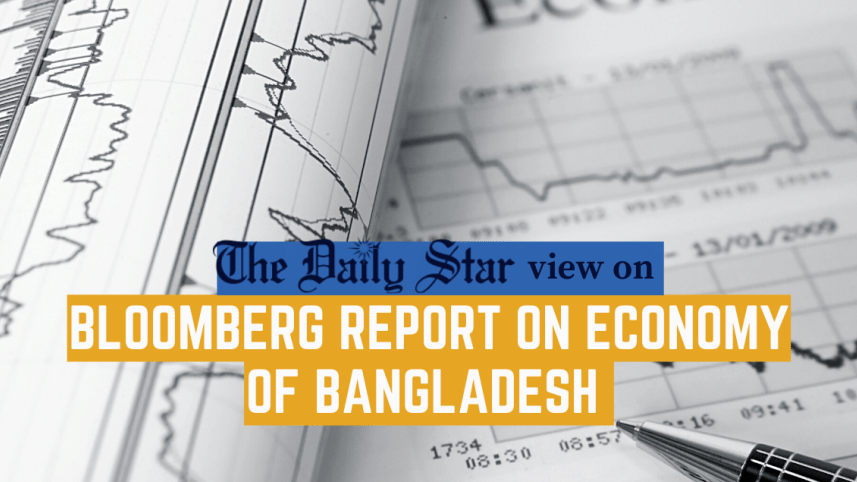Bloomberg’s praise of PM’s timely steps

We are heartened by the Bloomberg news agency's recognition of Prime Minister Sheikh Hasina's "timely reform steps" which have acted as a buffer against the negative impacts of an international economic crisis. After tackling its crippling effects on our economy during the pandemic, Bangladesh had to face continuous challenges created by the prolonged war in Ukraine. These included a protracted energy crisis leading to the rise in import costs and consequently the costs of all commodities, including daily essentials. The unprecedented depreciation of the taka and the dramatic drop in forex reserves have been a source of great concern for industries dependent on the international market.
As Bloomberg's article has mentioned, it was a prudent move of the PM to get a $4.7 billion IMF loan in January this year, which helped to bring about some economic stability against the backdrop of a volatile international market. Though it was not the most popular decision, the government went ahead with it and raised energy prices which prompted the IMF to give Bangladesh the loan first, among the three countries that had asked for it. This may well have helped to avert a deeper economic crisis in the country.
The IMF loan, no doubt, has prompted other international donors to step in; recall the $2 billion budget support from a co-funding initiative led by the Asian Development Bank. These funds will help ease the continued pressure on foreign exchange reserves. Of course, all these funds have been given with the condition of initiating certain reforms. Further funds can be ensured if the government can bring about reforms in the financial sector such as the central bank's adopting an independent monetary policy, reducing non-performing loans, boosting climate change funding, and so on.
While the PM and her government's efforts to bring about stability in such an economically turbulent time in the world is laudable, we must remind ourselves that the uncertainty that we are facing is far from over. The PM has reiterated the need to maintain food security during these difficult times, and we think it is wise to prioritise this when food inflation is a global phenomenon and has reached our shores quite punishingly. With no signs of the Russia-Ukraine war abating, the ripple effects of this catastrophe will continue to disrupt economies and keep us on our toes. As the world threatens to go into recession, our industries that depend on the international market will be more vulnerable. This will then affect employment, consumption and the cost of living. Thus, the focus should be kept on the most marginalised groups, who are already heavily affected. Reforms required in the financial sector must also be carried out on an urgent basis.
Bangladesh, despite being such a small country in terms of land area with a population of over 160 million, has shown remarkable economic resilience in the face of the pandemic and the war. We hope that the government will continue to take timely steps and ensure proper follow-ups so that this resilience is maintained and nurtured.



 For all latest news, follow The Daily Star's Google News channel.
For all latest news, follow The Daily Star's Google News channel. 

Comments